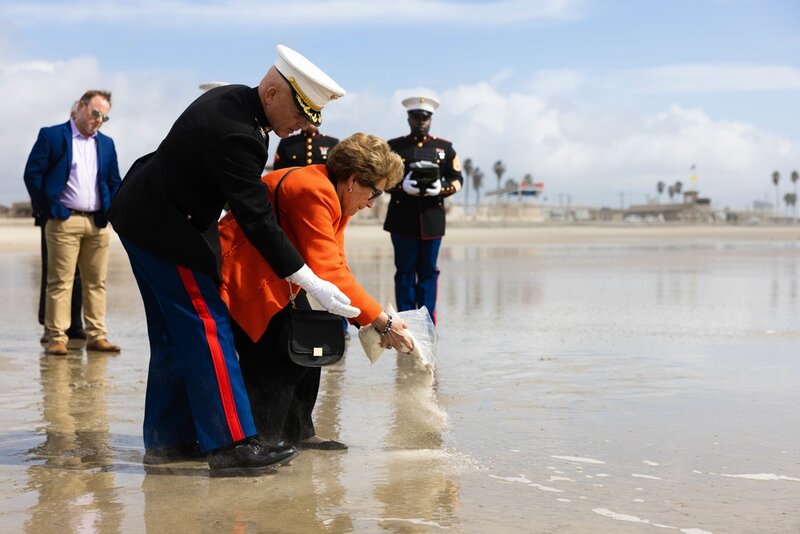Dan Daly. Smedley Butler. Chesty Puller.
The names of the Corps’ legends are drilled into the heads of every recruit and candidate during their first few days as Marines. Living up to the legacy of those who have gone before has been a driving principle of Marines since the day after Tun Tavern.
Recently, friends and family held a memorial ceremony for an old Marine who, while less famous, had a life and career just as impactful as the Corps’ greatest legends. After touring the areas of Marine Corps Base Camp Pendleton, California, where he lived and worked as a Marine, the family of retired. Lt. Col. Clark Henry spread his ashes in the water off Del Mar Beach, Feb. 21.
“Lt. Col. Clark Henry was living history, and his generation - the ‘Greatest Generation’ - were the giants that I grew up with,” said retired U.S. Marine Col. Willard Buhl, a friend of Henry. “The men that went over the sea wall at Inchon, who endured 25 below, they’re immortal in our legend as legendary Marines, but he was a living example of it.”
Henry enlisted into the Marine Corps as a 16 year old in September 1942. During World War II, he fought in the Solomon Islands with 3rd Battalion, 5th Marine Regiment, 1st Marine Division, as a telephone operator. He rose quickly through the ranks and became a sergeant just three years into his enlistment at the age of 19. When WWII ended, he went into the reserves but then returned to active duty when the Korean War started in 1950.
In Korea he served as a platoon sergeant for a scout sniper platoon with the legendary George Company, now known as Golf Company, 3rd Battalion, 1st Marine Regiment, 1st Marine Division. The Marines of George Company would earn the nickname “Bloody George” after Chosin Reservoir, and participated in one of the wars bloodiest battles – the fight to defend Boulder City in July 1953. As the war came to a close, Henry was selected to become a commissioned officer.



 Marines
Marines Camp Pendleton
Camp Pendleton WWII World War Two
WWII World War Two Korean War
Korean War


